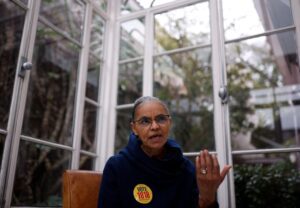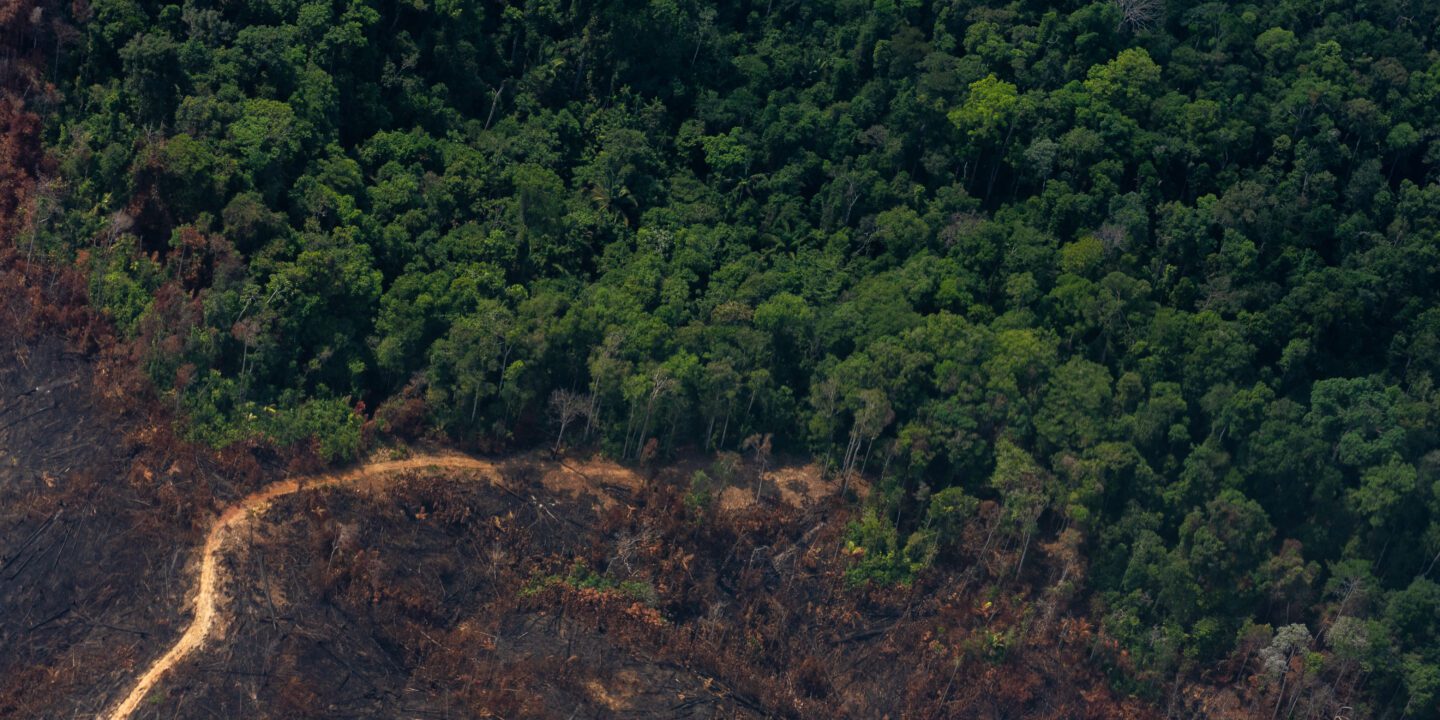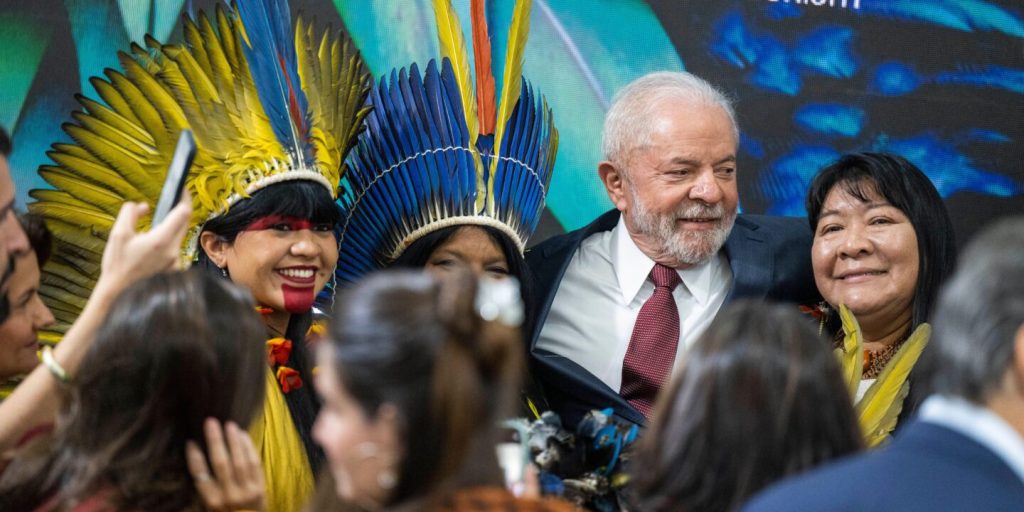After winning the recent presidential elections in Brazil, Luiz Inacio Lula da Silva arrived in Egypt and added an interesting touch to the country’s presence in COP27 Climate Summit. Few presidents-elect have received such a warm welcome at a multilateral event, as if they were already in office, resoundingly excited by their country’s official delegation.
Lula arrived at the conference on Tuesday at the personal invitation of Egyptian President Abdel Fattah El-Sisi. Lula began a busy schedule of side events and informal meetings, while Brazil is still represented in the negotiations by a delegation from the outgoing government, Jair Bolsonaro.
In his first two days at the summit, Lula — whose return for a third term is seen as a boost to the global environmental agenda — met Xi Zhenhua and John Kerry, climate envoys from China and the United States. . The latter told BBC Brazil that he expected the president-elect to give “a turnclimate policy in Brazil.
In most corners of the convention center, Paula, who will take office in January, was greeted with cheers and a welcome worthy of “rock starThey delivered speeches into packed halls with a clear message that “Brazil is back“.
“Brazil is emerging from the isolation it has experienced in the past four years,” the president-elect told the audience. Brazil was not born to be an isolated country.
He also repeated to him Show For future COP hosting in the Amazon, 2025 is the next possible date available, although not yet confirmed.
Countries often have only one flag at climate summits. But the sharp divisions emerging in Brazil amid the Bolsonaro government’s controversial management of the environment led to the creation of three separate wings at COP27: one representing Bolsonaro’s federal government, one representing Amazonian state governors who acted against the government, and another led by civil society.
Brazil has emerged from the isolation it has experienced in the past four years
The vision of Brazil that Lula presented at the summit was markedly different from that presented in the official pavilion of the national government. Presentations by the Ministry of the Environment, led by Joachim Lett, focused on data on renewable energy: the Minister’s strategy was to compare the Brazilian energy matrix, mainly based on in hydroelectric power, with Europe dependent on oil and coal – which has become more evident since Russia began its war in Ukraine. For his part, Lula highlighted the deterioration of the Amazon protection And for indigenous peoples, the reduction of environmental inspections and the consequent increase in deforestation in the biome.
The president-elect said: “In the first three years of the current government, deforestation in the Amazon increased by 73%. Only in 2021, 13,000 square kilometers were deforested. This devastation will be a thing of the past. Environmental crimes that have grown alarmingly during this ending government , Now you will fight without a truce.” He stressed that climate issues will be the focus of his new government.
Diplomatic section of COP27
Raoni Ragao, a professor at the Federal University of Minas Gerais and a researcher at the Wilson Center, told Diálogo Chino that there is a “diplomatic estrangement” for Brazil during the conference, with ministers and state representatives only sitting down to talk to their counterparts who are actually in charge.
“There is a great desire to start talking with the Lula government, as there is a consensus that all possibilities of moving forward with the Bolsonaro government have been thwarted,” said Ragao, who attended COP27 and commented that the participation of the official delegation was. low profile.
Ragao added that Lula’s arrival has helped rebuild the lost bilateral relations more than having a real impact on the official negotiations of the conference.
Despite the optimism on the international scene, it remains unclear how Lula will deal with climate issues at the national level. One difficulty he will face is aligning the interests of the country’s agribusiness and its powerful lobby in Congress with those of the climate agenda.
During Lula’s previous government (2003-2010), his Former Environment Minister Marina Silva, parted ways with the President and the Labor Party over disagreements over environmental policy. Lula was expected to announce the future prime minister during COP27, but this was not the case.
Amazon financing
COP27 gave new impetus to negotiations on international financing for Brazil, with Amazon fund of about $600 million, crippled under the Bolsonaro government, which is about to resume work, and the volume of transfers may increase. At an event with the governors of the Brazilian Amazon states, representatives of the governments of Germany and Norway, which support the fund, spoke of their intention to release the resources early next year.

Marina Silva, former environment minister and current legislator and member of Lula’s transition team, confirmed to Diálogo Chino that international actors are interested in investing in Brazil’s climate agenda.
“There is a great mobilization for cooperation with Brazil, and we feel that here with bilateral relations with all countries, with multilateral financing organizations, with charitable work,” Silva said. Lula also used his platform at the summit to call on rich countries for financial assistance.
“Everyone is worried about helping Brazil make this journey, especially in the first year [de la nueva administración], since the budget will be determined by the Bolsonaro government, Silva explained. The country is expected to close 2022 with a debt level of nearly 80% of its GDP, up 20 points from 2018.
Brazil is back?
On her way to the top, Marina Silva too I spoke to the media On the importance of Brazil’s commitment to the climate agenda and the resumption of trade negotiations. In particular, the proposed agreement between the European Union and Mercosur, the economic bloc made up of Brazil, Argentina, Paraguay and Uruguay, which was announced in 2019, will again be on the agenda, and Silva stressed that “negotiations will resume”. “They were suspended because there was no confidence that the Bolsonaro government would comply with the provisions protecting the Amazon and indigenous peoples.” All four countries are having difficulties with agribusiness-driven deforestation in their biomes.

During COP27, Lula’s transitional team received A.J document With suggestions for external environmental policy prepared by Cipó Platform, an NGO dedicated to climate, it was presented by its Executive Director, Adriana Abdelnour. Other signatories to the proposals include Isabella Teixeira, another former environment minister and advisor to the COP27 presidency, and Pedro Abramovai, Latin America director of the Open Society Foundation.
Abdelnour told Diálogo Chino that Brazil needs to move beyond emergency climate measures and think about short, medium and long-term strategies. “International cooperation should be a way to promote sustainable development and just transition policies,” he said. Lula will reposition Brazil as an active player in regional and global discussions.
Brazil has the capacity not only to strengthen and rebuild its mechanisms, but also to create new channels of dialogue and new initiatives.
In the document, the group states that Latin America and the Caribbean should use climate issues as a new issue basis for regional integration. “This is very important not only because of the challenges posed by climate change, but also in the context of the Covid-19 pandemic, where there has been a restructuring of the global economy and new risks to supply chains of value, such as food and energy,” said Abdelnour.
When asked about the difference she noticed in Brazil’s presence at the COP27 compared to previous events, Abdelnour considered that there was more optimism, even with the challenges ahead.
“It will not be a very easy effort,” he said. “There has been a massive hollowing out and dismantling of the federal institutions responsible for protecting the environment.” “But Brazil, inside and outside the state, in civil society and the private sector, has the capacity not only to strengthen and rebuild its mechanisms, but also to create new channels of dialogue and new initiatives.”

“Unapologetic tv specialist. Hardcore zombie trailblazer. Infuriatingly humble problem solver.”


:quality(85)/cloudfront-us-east-1.images.arcpublishing.com/infobae/N6JGVOENRJDQTHF5V7XEB6N6VM.jpg)




More Stories
This Sunday, the Dominicans will elect a president from among nine candidates ›World› Granma
Who is the alleged attacker of Slovak Prime Minister Robert Fico?
Tomorrow, the Dominicans will elect a president from among nine candidates